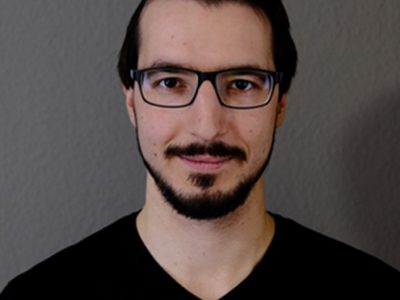15.03.2021
Two Max Planck Institutes in Göttingen become one
The Max Planck Institutes (MPI) for Biophysical Chemistry and for Experimental Medicine will merge. The decision-making bodies of the Max Planck Society (MPS) approved the plan submitted by the two institutes on March 12. Formally, both institutions will be closed and a new MPI will be founded, keeping the existing
15.03.2021
Register now for the Women’s Carrers and Networks 2021
Until April 30th, 2021 you can register for the next virtual Women’s Careers and Networking symposium (WoCaNet 2021) taking place from the 27th to the 28th of the coming May. The aim of WoCaNet is to provide an interactive environment for young female scientists to find new possibilities and networking
12.03.2021
Jutta Gärtner successful with DZKJ satellite Göttingen
The Federal Ministry of Education and Research (BMBF) has selected the University Medical Center Göttingen and other scientific partner institutions from Göttingen as new satellite location for the German Centre for Child and Adolescent Health (DZKJ). Prof. Dr. Jutta Gärtner, Director of the Department of Paediatrics and Adolescent Medicine, UMG
26.02.2021
A weak heart links to memory impairment
Heart problems cause disturbed gene activity in the brain’s memory center, from which cognitive deficits arise. A team led by Prof. Dr. André Fischer (reserach group leader at the DZNE Göttingen site, Professor at the Department of Psychiatry and Psychotherapy at the UMG and MBExC member) and Prof. Dr. Karl
18.02.2021
Communitas Prize for Viola Priesemann
The Max Planck Society honors the physicist and MBExC member Dr. Viola Priesemann for her science communication during the Corona pandemic, where she advises politicians, gives interviews, writes statements and publishes her scientific work in prestigious journals. Since the beginning of the pandemic, Viola Priesemann has been calculating scenarios of
09.02.2021
“Heart patch” made from stem cells enters world’s first clinical trial
First application in humans: The BioVAT-HF-DZHK20 study intends to investigate the use of heart muscle tissue derived from stem cells for treatment of patients with severe heart failure. The incorporation of heart muscle tissue cultivated in the laboratory is intended to sustainably improve the pumping function of diseased hearts. The
05.02.2021
Synaptic diversity broadens the range of sound we can hear
Hearing occurs when sensory hair cells in the inner ear convert sound into neural signals transmitted to the brain. The sensory hair cells have about a dozen communication points with the auditory nerve fibers, called synapses. Scientists from the Institute for Auditory Neuroscience at the University Medical Center Göttingen discovered
05.02.2021
Awarded doctorate in neuroscientific hearing research
Dr. Alexander Dieter, a young neuroscientist and first author of the MBExC publication “μLED‐based optical cochlear implants for spectrally selective activation of the auditory nerve” (published in summer 2020 in the EMBO Molecular Medicine Journal), has been awarded with the doctoral thesis award 2021 of the Studienstiftung des Deutschen Volkes.
02.02.2021
The Hector Science Award goes to Patrick Cramer
The Hector Foundation honors the director of the Max Planck Institute (MPI) for Biophysical Chemistry and member of the MBExC, Patrick Cramer, for his outstanding research in the field of gene transcription. The prize is endowed with 150,000 euros and was awarded at a virtual event on January 29.
29.01.2021
Alternative to cardiac catheter examination
Diastolic heart failure can be reliably detected with the help of a newly developed magnetic resonance imaging (MRI) technology, shows a study by the Göttingen partner site of the German Centre for Cardiovascular Research (DZHK). Until now, this was only possible with an invasive cardiac catheter examination, which is very











